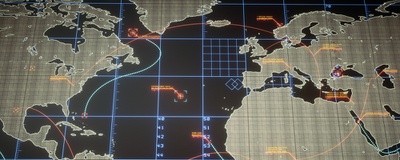
Participation at the VIEWS Prediction Challenge
15 October 2023
On the 10th and 11th of October, two teams from the Center for Crisis Early Warning (CCEW) participated in the second installment of the VIEWS Prediction Challenge Workshop, hosted by the German Foreign Office in Berlin. The event provided a platform for academics to showcase their prowess in using quantitative models to predict future conflicts and assess the potential of different approaches to improve existing crisis early warning models. Attendants from all over the world came to Berlin to present new methods and to discuss possible strategies to enhance crisis early warning models.
Team A (Tobias Bohne, Martin Hofer, and Daniel Mittermaier) approached the challenge using a two-stage geographical random forest approach to predict conflict fatalities at the PRIO-GRID level. Their collaborative efforts focused on combining the predictions of local and global hurdle models and accounting for spatial heterogeneity through a spatial clustering approach. Their ensemble employed Distributional Random Forest models to directly account for the uncertainties associated with predicting conflict. With a commitment to innovation and a deep understanding of the complex nature of crises, Team A showcased a solution that impressed with high accuracy in their preliminary results.
Meanwhile, Team B, consisting of Julian Walterskirchen, Marco Binetti, Sonja Häffner, and Christian Oswald, took a unique approach by applying the novel Temporal Fusion Transformer (TFT) architecture to the conflict prediction challenge, incorporating past and future data on election dates in their modeling approach. By harnessing the power of this complex deep learning architecture, they aimed to capture long-term and short-term temporal trends and non-linear dependencies. Their strategy demonstrated the versatility of state-of-the-art modeling approaches and underscored the challenges of applying more complex architectures to conflict prediction.
The workshop participants face intense competition, but the VIEWS Prediction Challenge Workshop provided a platform for collaboration and knowledge exchange among professionals dedicated to crisis prevention and response.
As the Center for Crisis Early Warning teams engaged with fellow participants, they gained valuable insights into emerging trends, methodologies, and best practices. The workshop served as a melting pot of ideas, where diverse perspectives converged to advance the collective goal of creating more effective early warning systems.
The experience gained at the VIEWS Prediction Challenge Workshop will contribute to the ongoing mission of the Center—to push the boundaries of what is possible in the realm of crisis prediction and crisis early warning.
Picture source: © CCEW / Julian Walterskirchen






